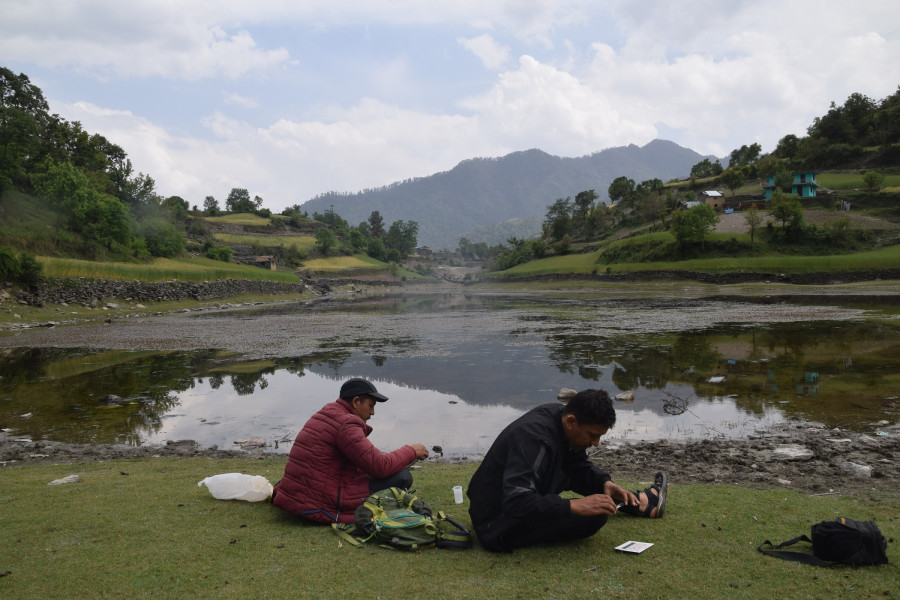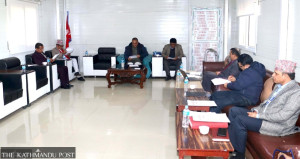Sudurpaschim Province
Sorry state of Seti affecting human lives: Report
The report has been published after three-year-long research on the Seti river watershed area.
Basant Pratap Singh
The condition of the watershed area in the Seti river is fast deteriorating, affecting and forcing the extinction of life in the river, according to a new report.
The report, carried out by Pani Project, a USAID-funded initiative, notes that the deteriorating condition of the river is also affecting human lives. The report was published after three-year-long research on the Seti river watershed area, according to the project’s officials. The river originates from the Saipal and Raksiyo mountains.
The quality of the river’s water has declined and the flow of the river’s current has been affected, the report further notes. The report says the river has deteriorated in all three aspects of its measurement—natural sources, infrastructure and governance.
The report is based on a survey that was conducted among 1,040 households and over 250 representatives from various organisations working towards river conservation.
The report warns that the increasing rate of human encroachment, infrastructure construction, deforestation, waste dumping, sand mining, among other reasons have contributed to the worsening condition of the river. And if it goes unchecked, the river may be beyond saving.
“Because of the landscape, the construction projects have caused landslides and affected households and forests, all the while deteriorating water resources,” the report says.
Along the river, in about 2,000 square kilometres, a total of 178 roads have been constructed. The total length of the roads is 1,266km. And the number is set to increase.
Moreover, the report also shows the decreasing quality and quantity of drinking water. During the research, water from 23 sources was evaluated.
It also states that because the extraction of sand material from the river has made the river’s course deeper, irrigation systems and hydropower projects in the region have faced a blow.
“The quality of water has declined to such an extent that whenever one takes a bath in the river, one develops itches across the body,” said Prabindha Dhami, a local of Jaya Prithvi Municipality. “Even the clothes washed in the river are unwearable.”
Further, the report says the deterioration of water resources will cause natural disasters, adversely impact aquatic life, especially fish, and create loss in agriculture produce. “Even though 82.6 percent households have been affected by climate change and disasters, the local units have yet to adopt nature-friendly policies,” the report says.
People’s representatives said that the report has opened their eyes. “This kind of detailed report on the Seti River is unprecedented,” said Bhuwaneshwore Upadhyay, chair of Thalara Rural Municipality. “This has not just shocked us but also shown where we went wrong and what we need to do to mitigate the deterioration.”
Likewise, Akkal Bahadur Dhami, chair of Chhabis Pathibhera Rural Municipality, said that the report has inspired them to seriously think about the problem and formulate environment-friendly measures to tackle it. “In the coming days, we will be serious about it. We have to conserve the environment; there’s no two ways about it.”




 20.12°C Kathmandu
20.12°C Kathmandu















